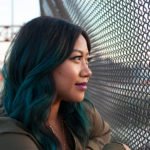Omer Itani is an exchange student from Lebanon. In his candid story, he shares his perspective on diversity, respectfully handling differences of opinion, the need for open communication, and the human perspective on conflict resolution. He shares his experience in being in the United States, and how optimism has kept his hope for a better tomorrow. This story was recorded with the 2016 Middle Eastern Partnership Initiative students with Benedictine University and StoryCorps.
“I’m from Beirut, Lebanon. I was born there, I studied there for school and university and now I’m in the Beirut Arab University. I study industrial engineering and engineering management and at the same time I work at an international NGO, which is based in Lebanon. I work as a marketing manager with them.
I didn’t have a cultural shock, but the thing that I was impressed with here is that everything is really big. The cities are big, the metros are big, there are like one hundred people crossing the road at a time. You don’t see that in Lebanon because we are a population of four million people.
The university is actually amazing here. People come from extremely different backgrounds, ethnicity, religions, and yet they work together to achieve a better future. I think people that came to the United States came from all around the world. They weren’t in a good position when they came here, but they strive to reach a better future and I think that many of them have actually established this future. There is a huge diversity of mentalities here like when you are talking to a Hispanic or a Mexican person, it’s different than talking to a person that comes from the South side of the United States, and different than when you are talking to Canadians, so you learn a lot.
For example, I went to Wisconsin and I was hosted by a family and they were Republicans. So, my view – when I was in Lebanon – was that Republicans are usually racist people. Then I went to them and they were amazing people, they were kind, they were generous. Then we started talking about politics and about religion. They definitely have a different view of politics than what I have, but I can assure you they are not racists; they see things in a different way. They have a different mentality of viewing things, but yet they want the best for the country, they want the best for the people, the best for humanity and the best for the community as a whole and I respect that. In Lebanon, we are 4 million, yet we have 18 different sects, so the religions we have, all have different mentalities and different ways of viewing things and each sect has its own party.
I think the most important thing is to hear others – to actually listen; to actually listen and be open-minded. Like when I went to my family, I discovered that there’s no right opinion. There are different opinions and we should see each other’s opinions. Let’s see what they really want and what I really want and a very important thing is to not be offended by ignorance or by wrong information, they had a lot of wrong information, but I wasn’t offended by this and that’s very important.
There’s a positive side in each and every situation, even in the most ferocious terrorist attack, seeing how people interact, how people give their love, how people actually sacrifice their lives, how people actually sacrifice their happiness to other people in terrible situation – It’s a source of happiness for me. Even in wars you can find a source of happiness so imagine in a peaceful country how many sources of happiness can we find. Happiness is everywhere. Pokemon is now a trend. You can catch Pokemon everywhere and you can catch happiness everywhere and you don’t need an app for that, just open eyes.”


